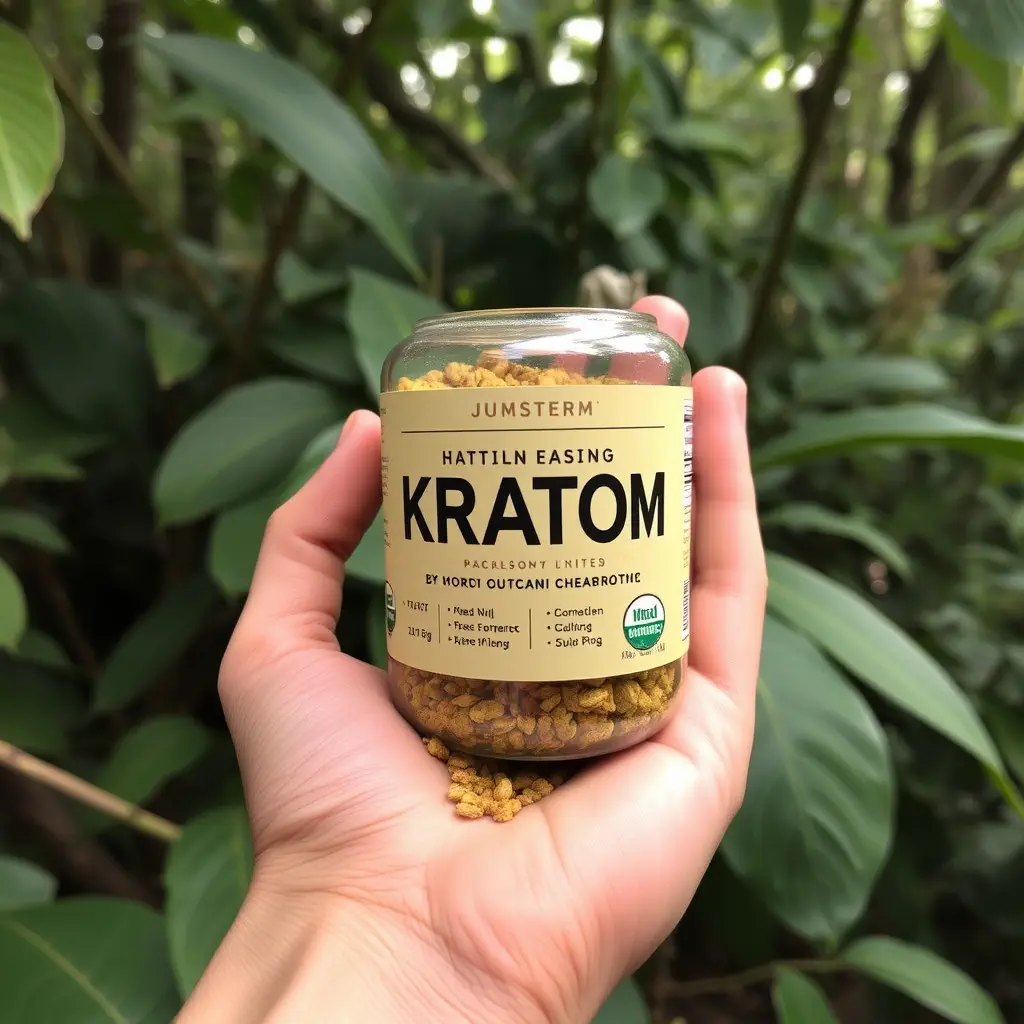Kratom, a plant alkaloid from Southeast Asia, is gaining attention as a potential aid in addiction treatment, particularly for managing withdrawal symptoms and cravings associated with substance use disorders. Its dual stimulant and opioid-like effects offer an alternative to traditional medications, but its inclusion in mental health counseling requires cautious consideration due to complex pharmacology, varying regulatory statuses across regions, and the risk of misuse and dependency. Mental health professionals must stay informed on current research and legal standpoints to make evidence-based decisions regarding kratom's role in treatment plans. The substance shows promise for reducing anxiety and depression during opioid cessation, potentially lowering relapse risks. However, the lack of standardization and definitive clinical trial outcomes necessitates a responsible approach to its use within therapeutic settings. The aim is to support clients effectively by integrating kratom into a comprehensive addiction treatment regimen that includes psychotherapy, medication-assisted treatment, and supportive care, all while adhering to ethical principles and legal compliance in mental health counseling.
explore the intersection of mental health counseling and alternative treatments, particularly focusing on the role of kratom in addiction recovery. This article delves into how kratom can be integrated into comprehensive mental health and substance abuse therapies, offering a nuanced perspective on its use within counseling sessions. While navigating the complex ethical and regulatory frameworks surrounding kratom, we aim to provide clarity on its potential benefits for those seeking addiction treatment with kratom, as well as the challenges faced by professionals in this field.
- Understanding Kratom's Role in Addiction Treatment within Mental Health Counseling
- The Integration of Kratom in Comprehensive Mental Health and Substance Abuse Therapies
- Navigating the Ethical and Regulatory Considerations Surrounding Kratom Use in Counseling Sessions
Understanding Kratom's Role in Addiction Treatment within Mental Health Counseling

Kratom, a botanical derivative from the Mitragyna speciosa tree, has garnered attention within addiction treatment circles due to its potential impact on mental health counseling. The alkaloids present in kratom leaves have been observed to exhibit both stimulant and opioid-like effects, making it a subject of interest for those seeking alternatives to traditional medications in managing withdrawal symptoms and cravings associated with substance use disorders. Incorporating kratom into addiction treatment plans is a nuanced approach that mental health professionals must navigate carefully. Clinicians report that kratom may help alleviate withdrawal symptoms, such as anxiety and depression, which often accompany the cessation of opioid use. This can be particularly beneficial for clients transitioning from more potent substances, providing them with a sense of calm and decreasing the risk of relapse during the vulnerable early stages of recovery. However, due to its complex pharmacology and varying levels of regulation across regions, it is imperative that mental health counselors are well-informed about the latest research and legal considerations when considering addiction treatment with kratom. Ongoing clinical trials and studies aim to elucidate its efficacy and safety in therapeutic settings, guiding practitioners to make informed decisions that align with their clients’ unique needs and circumstances.
The Integration of Kratom in Comprehensive Mental Health and Substance Abuse Therapies

Kratom, a plant originating from Southeast Asia, has garnered attention in the context of addiction treatment with kratom. Its leaves contain compounds that can have stimulant or sedative effects, depending on the dose, influencing various neurological pathways associated with pain and mood regulation. As an integrative approach to mental health counseling, kratom may offer relief for individuals suffering from conditions such as depression and chronic pain, which often co-occur with substance abuse disorders. The use of kratom in treatment protocols must be approached with caution, as it has the potential for abuse and dependency; thus, its integration into comprehensive mental health and substance abuse therapies requires careful consideration and oversight by qualified professionals. Clinicians are exploring how kratom can be a component within a broader treatment strategy that includes psychotherapy, medication-assisted treatment, and supportive care to address the root causes of addiction and improve overall well-being. Ongoing research aims to clarify the efficacy and safety of kratom for addiction treatment with kratom, ensuring its use is both responsible and beneficial within a therapeutic setting. As such, it is an area of active investigation that holds promise for expanding the tools available to mental health professionals in treating those affected by substance abuse.
Navigating the Ethical and Regulatory Considerations Surrounding Kratom Use in Counseling Sessions

Navigating mental health counseling, particularly in cases involving substances like kratom, necessitates a nuanced understanding of both ethical and regulatory frameworks. Kratom, derived from the Mitragyna speciosa tree, has garnered attention within addiction treatment circles due to its opioid-like effects. Counselors must be well-versed in the legal status of kratom, as it varies across jurisdictions; in some areas, it is fully legal, while in others, it may be subject to restrictions akin to controlled substances. This variability underscores the importance for counselors to stay informed on the evolving legislation and adhere to the ethical mandate to “do no harm.” Ethical considerations extend to maintaining client confidentiality, especially when discussing substance use, while also reporting as required by law to prevent harm to the individual or others. In addition to navigating legal and ethical boundaries, counselors must employ evidence-based practices that address the complexities of kratom use, including its potential for addiction and interplay with mental health conditions. The counseling profession’s commitment to upholding ethical standards and regulatory compliance is paramount when addressing the multifaceted nature of kratom use in treatment, ensuring that clients receive comprehensive and informed care within the bounds of the law.
In concluding, the integration of kratom within addiction treatment and mental health counseling presents a multifaceted opportunity that warrants careful attention and responsible implementation. The potential benefits of kratom in mitigating withdrawal symptoms and supporting individuals’ psychological well-being must be balanced with ethical and regulatory frameworks. As such, mental health professionals should approach this topic with due diligence, ensuring that any use of kratom is informed by empirical evidence and complies with the prevailing legal standards. The discourse on addiction treatment with kratom is ongoing and evolving, necessitating a continued dialogue among clinicians, policymakers, and researchers to navigate this complex landscape effectively.






